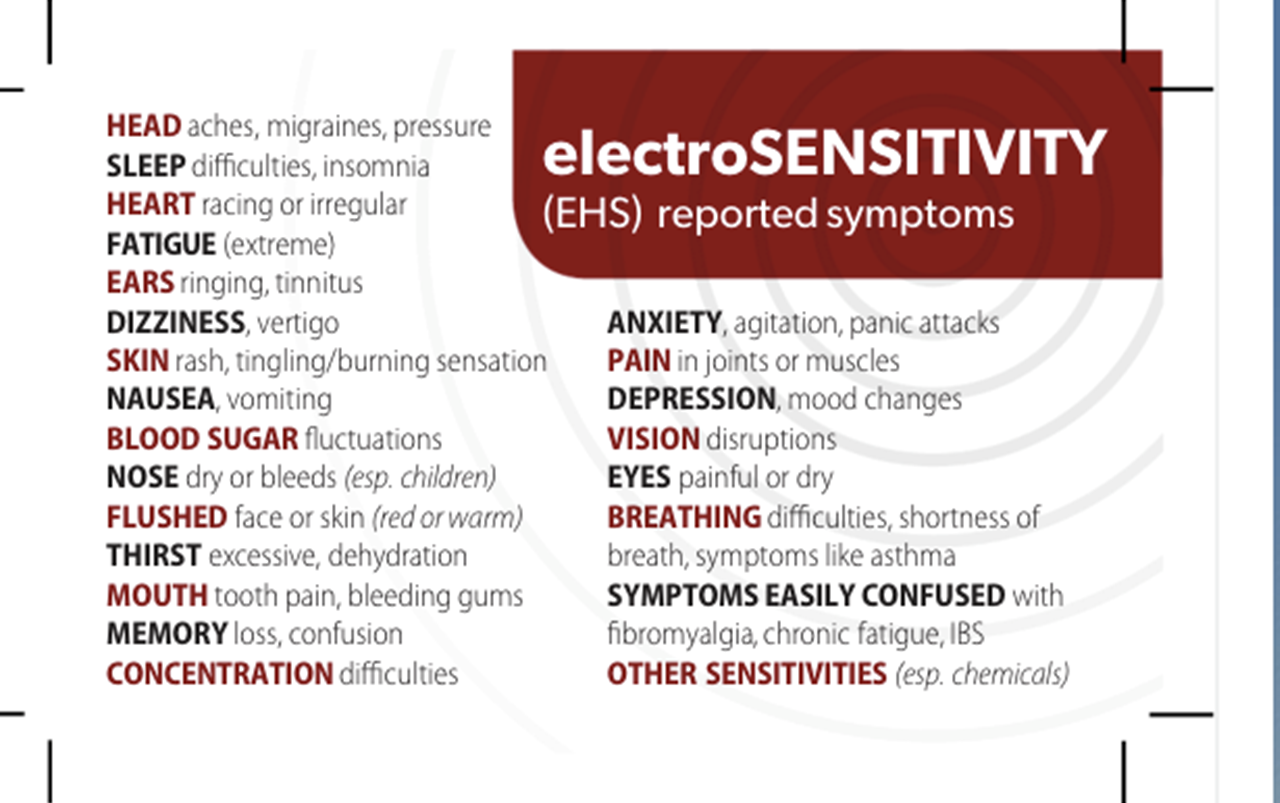https://coalair3.doodlekit.com/blog/entry/25078950/facts-about-electromagnetic-field-sensitivity (EMF sensitivity) is a condition where the person is afflicted with a severe sensitization to electromagnetic fields around him. It is not restricted to environments that do not have electrical current, but can be a problem for people with an open circuit or are in contact with electromagnetic field for long durations of time. The Environmental Health Center in Dallas is well-versed in the reasons behind EMF sensitivity and can help patients treat the symptoms. emf sensitivity is able to conduct tests to determine if an individual is susceptible to EMF exposure. This can be done with the latest technology to measure heart rate variability.
IEI-EMF sensitivity is a symptom of emf exposure
Electromagnetic contamination and the resulting electromagnetic fields are a factor in the development of a variety of ailments. The signs and symptoms can be difficult to recognize and some individuals have reported a range of symptoms. They could be the result of pre-existing health conditions or a response to stress caused by the prospect of exposure to large amounts radiation fields. Whatever the reason, the symptoms can be very debilitating to individuals who experience them. However, the scientific community is yet to determine how widespread the IEI-EMF sensitivity syndrome is and how widespread it is.
It is not a symptom of electrohypersensitivity
While the symptoms of electrohypersensitivity and EMF sensitivity are similar, there are some key differences. Electromagnetic hypersensitivity can be misunderstood and symptoms may vary. It is essential to obtain an accurate diagnosis in order to determine the underlying causes and potential treatments.
It is not a sign of EHS
While EMF sensitiveness isn't an underlying symptom of EHS but it is commonly related to the disorder. In fact, some studies have suggested that the condition is related to environmental and genetic factors rather than a particular physical issue. However the need for more research to come to a definitive conclusion.
It can be confusing
The symptoms of EMF sensitivity can be perplexing. Most EHS sufferers aren't able to attribute their condition to a specific source. They seek medical treatment however are unable to identify a cause for their condition. It is possible that they might have an underlying mental disorder that can lead to an increasing feeling of despair and anxiety.
It can be frightening
Electromagnetic fields or EMFs, can be terrifying. Many people have reported experiencing uncomfortable symptoms when they are exposed to these fields, which are generated by devices like Wi-Fi routers as well as mobile phones. The symptoms may vary in severity, and in extreme cases, individuals have to avoid electric devices and fluorescent lighting. In extreme cases, people might even be forced to leave the world of modernity and live in isolated communities that are known in the industry as "EMF-free zones".
It is a good supplement to the production of melatonin.
A single of the significant hormones in the body, melatonin, is synthesized in the pineal gland. It is involved in numerous functional aspects of life, including the regulation of circadian rhythm. But https://paste1s.com/notes/86PLFVY as a factor of protection from non-ionizing fields of electromagnetic radiation has been questioned, largely due to inconsistency with the results of different studies. The current knowledge of the hormone's protective mechanisms is largely based upon our understanding of the mechanism by which it works to protect the body from the oxidative stress produced by exposure to RF/ELF.
It can aid with autonomic nervous system changes
A number of studies demonstrate that EMF sensitivity can affect the autonomic nervous system. People suffering from the condition may be affected by altered autonomic reactions and may experience digestive issues. There are some patients who have trouble digesting food properly , or be ill when they eat a smaller portion. Some may notice changes in their body temperature and have heat intolerance. These issues are typically related to other health issues, such as diabetes.

